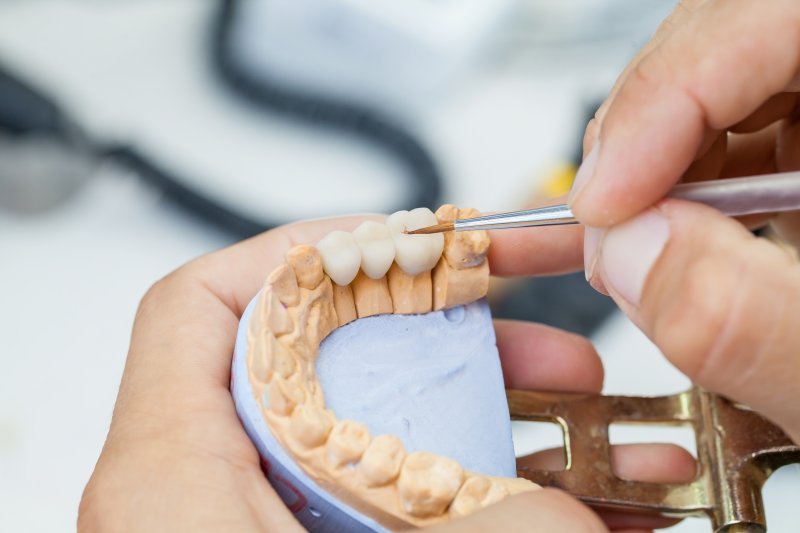Information?

Dental crowns, often referred to as “caps,” are vital in restoring and protecting damaged teeth. While today’s modern crowns are durable and resistant to acid and staining, they don’t last a lifetime. Understanding the lifespan of these dental restorations can help you learn what to expect when you receive one of your own.
Continue reading to delve into the intricacies of dental crowns, exploring their uses and ways to extend their lifespan.
What is a Dental Crown?
A dental crown is a custom-designed cap that is placed over a damaged or weakened tooth to restore its strength, shape, and functionality. It’s normally crafted from ceramic materials like porcelain, but some dentists may use metal or a combination of materials. Crowns are tailored to match the natural color and structure of your teeth, giving them a seamless and natural look.
How Long Do Dental Crowns Typically Last?
The longevity of dental crowns varies depending on factors such as the material used, oral hygiene practices, and daily habits. On average, dental crowns can last anywhere from 10 to 15 years or more. Porcelain crowns are usually the best option as they fuse function and aesthetics better than metal or combination prosthetics.
What are Some Ways to Make a Dental Crown Last Longer?
While much of a crown’s longevity depends on it’s make and materials, there are still ways you can extend its life:
- Maintain Excellent Oral Hygiene: Regular brushing, flossing, and routine dental check-ups are essential for the longevity of dental crowns. Proper oral care helps prevent decay in the surrounding teeth and ensures the crown remains in good condition.
- Mindful Eating Habits: Avoid biting down on hard objects, such as ice or unpopped popcorn kernels, to prevent the risk of damaging the crown. Additionally, refrain from using your teeth as tools to open packages or bottles.
- Protect Against Teeth Grinding: If you grind your teeth at night, consider wearing a nightguard. Grinding teeth can put excessive pressure on dental crowns and lead to premature wear.
- Regular Dental Checkups: Schedule routine visits to your dentist for professional cleanings and exams. Dentists can identify potential issues early on and address them before they escalate.
- Address Issues Promptly: If you notice any changes in your dental crown, such as discomfort, sensitivity, or visible damage, you should seek treatment from your dentist. Stopping dental issues early leads to greater success.
The lifespan of dental crowns is influenced by various factors, and proper care is key to extending their life. If you need a dental crown, or if you think it may be time to have one replaced, talk with your dentist. Delaying treatment will only make it harder for your dental crowns to be successful.
About the Practice
At Sunny Dental, you’ll find a brilliant team of dental professionals with a passion for helping patients. Whether you need a simple filling, a dental crown, or a full-mouth restoration, the experts on their team can make a customized treatment plan for all your needs. Call (469) 765-8050 to schedule an appointment or visit the website to discover other services.

